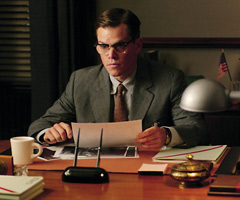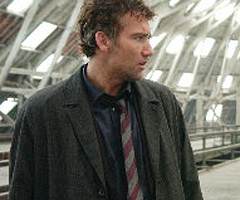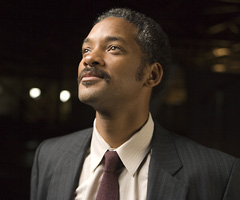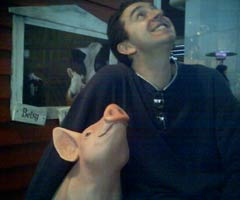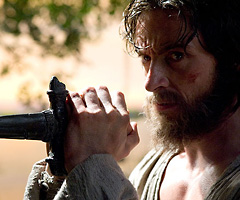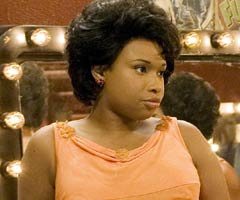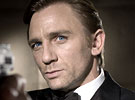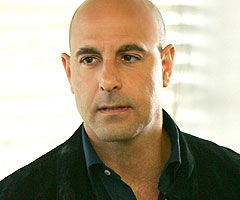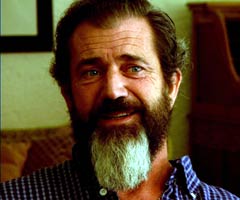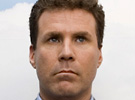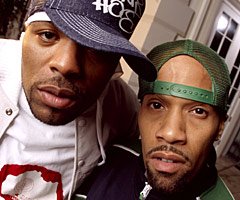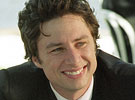Hmmm... So much for that whole "'Snakes on a Plane' Is a Phenomenon'" juggernaut. It was only a few months ago that I cautioned against the bandwagon-jumping mentality that declared "Mission: Impossible III" a bomb after its Friday returns came in lower than expectations. But here I go doing the same thing...
"Snakes on a Plane" has made an estimated $7.5 million since it opened late Thursday night. It's Friday figures were closer to 6.13 million, according to
BoxOfficeMojo. If ever a film were designed for a big must-see-on-first-day-or-not-at-all gross, it's "Snakes," so you can figure a three-day weekend total of only $16 or 17 million and you may need to include Thursday totals to make that number.
Why is that a massive disappointment for New Line? Well, for one thing, industry observers were predicting a first weekend gross anywhere between the low $20s and the upper $30s. Nobody had a clue what to expect, but no expert I've read went on record with anything as low as what actually took place. Figure that the movie will take a %60-65 percent drop in weekend two and that's just not impressive.
But would you like a better idea of why it's disappointing? Because back in 2004, two August weekends later (and therefore worse), another film about killer snakes -- "Anacondas: The Hunt for the Blood Orchid" -- was released. An entirely unnecessarily and undemanded sequel to a seven year-old movie, with a budget of only $20 million and no star bigger than Johnny Messner, "Anacondas" took in nearly $13 million. More importantly, there were no magazine covers for "Anacondas," no newspaper articles about how it had changed the face of movies forever, no epic deconstructions of how it became a phenomenon. Nope. "Anacondas" just dropped into theaters and took in $13 million. That fact should cause the New Line marketing department to weep a little, as should the fact that "Snakes" is going to post a lower first weekend than "Step Up." Oye.
In the media and over at New Line, the next week will see a lot of question-asking. And keep in mind that I
kinda liked the movie, but here's a few issues that might come up:
Is the Internet a hoax? Well, it sure is when you look to a niche group as somehow indicative of a national sentiment. Duh. The New Line people looked at SnakesonaBlog and the dozens of imitators and confused the "X" number of readers and posters with a mainstream moviegoing audience. I don't know, in that previous sentence, if "X" equals thousands or millions, but whatever the figure is, if you multiple it by the average ticket price nationwide, I suspect you'll get a very similar figure to the first week gross. Similarly, New Line looked at the 7000 people at the film's Comic-Con presentation last month and confused that audience with a mainstream moviegoing audience. New Line spent the last 6 months preaching to the choir and never for a second thought that it was necessary to turn to the congregation. In electoral politics, there's a statistic of people who make their voting decision in the final week before the election. Does anybody track a similar stat for moviegoers? Because I'd wager that the number of people who only decided to see "Snakes on a Plane" in the past week is miniscule.
So who was reading all of those trend pieces anyway? People who already knew about "Snakes on a Plane" already, mostly. Again, more preaching to the choir. On Wednesday, when I announced to a close friend who lives in Chicago, watches plenty of TV and spends a decent amount of time on the Internet that I was seeing a 10 p.m. Thursday show of "Snakes on a Plane," she responded, "Huh?" Apparently the
LA Times, Entertainment Weekly and all variety of other outposts were mostly telling "Snakes on a Plane" fans about how cool and influential they were. The stories weren't actually doing a thing to make people outside of the phenomenon feel like they could be part of it. In fact, the stories probably made many people feel like they'd already missed the bus.
Should New Line have screened the movie for critics? This is the biggest no-brainer on Earth. Yes. Yes they should have.
Reviews for "Snakes" were largely positive, but that's almost beside the point. If regular folks read reviews anymore, it's people who are deciding on a Friday what movies to go see, undecided theatergoers. Instead, New Line decided those viewers weren't important and actively told them so. Everybody affiliated with the movie who did the talk show circuit announced that the movie wasn't screening for critics because it was for "the fans." That classing of "the fans" excludes anybody casually interested in the movie and alienates them.
Should the movie have been marketed differently, as something else? I've heard several people saying that they couldn't tell from the advertising if "Snakes on a Plane" was a scary movie or a comedy. The same confusion helped kill "Slither" this spring despite excessively positive reviews. The commercials I saw made "Snakes" look like campy fun, which it kinda was, emphasizing the changes made for fans, particularly The Line delivered by Samuel Jackson. Nobody ever tried convincing horror fans that "Snakes" was scary. "Anacondas," if you actually see it, is plenty campy. It was marketed as a scary movie. I'm just sayin'...
Should "Snakes" have been released sooner? Did the "Snakes" buzz peak too soon? Did "Snakes" cease to be cool sometime between April and August? Probably. The party line has always been that "Snakes" couldn't have opened any sooner because there wasn't a free weekend, there was too much competition. How much worse could it have done? There's also the issue of perception. If "Snakes" opens to $16 million in mid-April, it's a surprise hit. If you set up four months of hype, suddenly that isn't so good. I'm not saying I commented on this back in April, but I
commented on it back in April.
Should "Snakes" have stayed PG-13? I loved The Line and I enjoyed the boobs and I'm sure the extra violence was a treat. But was it worth the time and the money? Was it worth the lost ticket sales for younger viewers? Once again, those changes were only beneficial to people who would have seen the movie with or without them.
"Snakes" may shock everybody by having legs (that may be an evolution joke... I'm not sure). People may go back multiple times and tell their friends and it may have a long life as a midnight movie. It's almost certain to do well on DVD and New Line isn't going to lose money on this.
But I can't help but feel like somebody should have made more money, that this was an opportunity lost.
Any thoughts? Was the media just overestimating the interest in snakes on planes? Was the media just overestimating its interest in itself?
